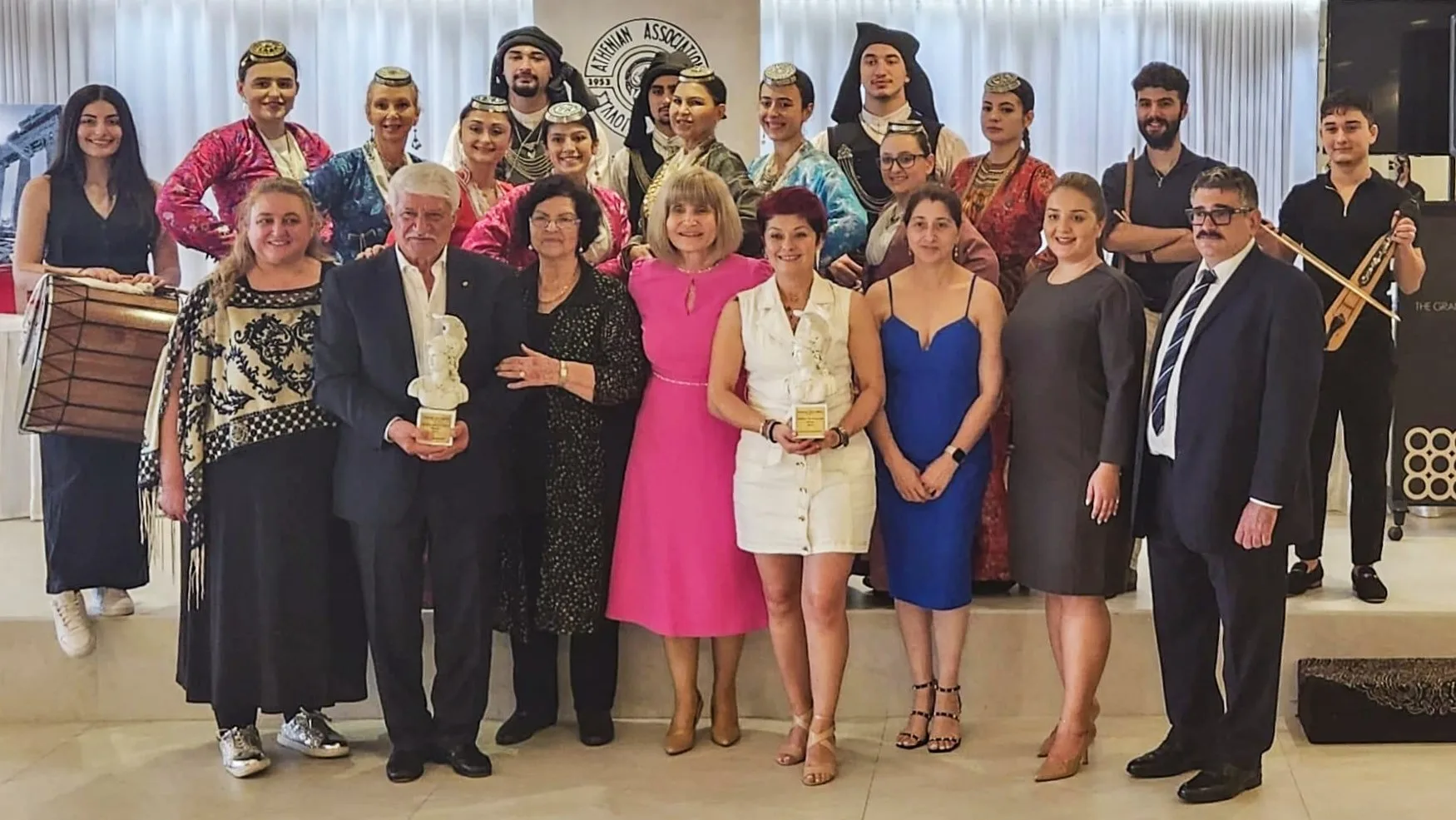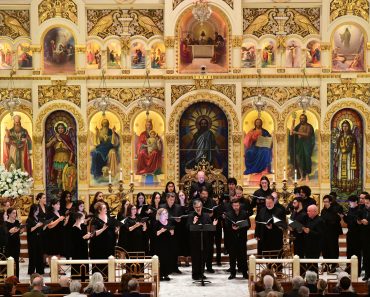BEIJING, Nov. 8 (Xinhua) — During her recent tour of southwest China to explore the ancient Shu culture, Valery Rees was surprised at the resemblance between a gold mask she saw in a museum in Sichuan Province and the mask of Agamemnon from ancient Greece — both dating back over 3,000 years.
“They are absolutely stunning finds and interesting parallels,” said Rees, head of Renaissance Studies at the School of Philosophy and Economic Science in Britain, ahead of the inaugural World Conference of Classics in Beijing.
“We have so much in common,” she said, adding that she would like to know more about the ancient culture in China. She was among over 400 experts and scholars in classical studies from around the world who visited the Asian country for the conference.
STRIKING SIMILARITIES
“Similarity” and “connection” are among the conference’s keywords, with many attendees emphasizing the commonalities between Chinese and Western cultures and calling for efforts to emulate each other.
Hans van Ess, vice president for research and chair at the Institute for Sinology of Ludwig Maximilian University of Munich in Germany, shared his views on the parallels between the cardinal virtues of Aristotle and Mencius.
He explained that “justice” in Greek philosophy is akin to “Yi” in Chinese thought, “moderation” corresponds to “Li,” and “wisdom” aligns with “Zhi.”
He also noted a key difference between the two sets of virtues: “Courage” is a cardinal virtue in Greek philosophy but not in Chinese thought, whereas “Ren,” or empathy, is central in Chinese philosophy but not in Greek.
For Imre Galambos, emeritus professor of Chinese and faculty of Asian and Middle Eastern Studies at the University of Cambridge, the similarities between the philosophies of the East and West are “striking.”
For example, the Silver Rule in the West says “Don’t do unto others as you would not want others to do unto you,” and meanwhile, Confucius expresses essentially the same idea in Lunyu (The Analects of Confucius), said Galambos in an exclusive interview with Xinhua.
Although it is the first time for Georgia Xanthaki-Karamanou to come to China, the professor at the University of Peloponnese in Greece knows a lot about Chinese culture, such as Confucianism.
“Because I’m a professor of ancient Greek culture and theology, I have the possibility compared to my job with ancient Greek culture just to have a general idea of the Chinese culture and literature,” she said. “We have very similar ideas such as morality, self-confidence and restraint, social justice and love for people.”
At the opening ceremony of the conference on Thursday, Audrey Azoulay, director-general of UNESCO, expounded on the connection of different cultures in her written speech.
“The wisdom shared by Confucius and Socrates bridges Mount Tai and the Acropolis of Athens,” Azoulay said, calling for more dialogues among civilizations.
MUTUAL LEARNING
The fusion and clash of ideas were palpable at every turn throughout the conference and the event was widely hailed by participants as a cross-cultural platform for mutual learning.
Christoforos Charalambakis, professor emeritus of linguistics, National and Kapodistrian University of Athens, called the conference “unique and innovative,” saying that it combines diversity to bring unity and respect for different viewpoints.
Martin Kern, a sinologist and professor at Princeton University, believes that cross-cultural dialogues are essential. He called for creating institutions where scholars of different ancient civilizations could come together and learn from one another.
“Just as the ancient civilizations influenced one another across long distances, so must our scholarly pursuit be informed by that of other civilizations,” he said. At the opening of the conference, which was co-organized by China and Greece, the Chinese School of Classical Studies at Athens was established as a new platform for civilizational exchange and mutual learning between China, Greece and other nations around the world. It is the first research institute of classical civilizations to be set up in Greece by an Asian country.
The school is expected to promote academic research and exchanges on classical civilizations across the world through engaging in archaeological excavation, organizing academic activities and launching training programs, among other functions.
“Magnificent! (The school is of) very great significance because in this way, we shall have the opportunity to be in touch with our Chinese scholars and to discuss things and questions of common interests,” said Xanthaki-Karamanou.
SOBERING REMINDER
Classical wisdom was highlighted at the conference, which concluded on Friday. Azoulay views revisiting classical works as “an invitation to self-reflection.” She argues that dialogues remain the only way to address the monumental challenges humanity has faced across generations and advance the mission of ensuring lasting peace.
For Lou Lin, vice director of the Center for Classical Civilization at Renmin University of China, classical studies have the power to revive the profound philosophies and cultural values embedded in ancient classics, serving as a “sobering reminder in an overly modernized society” and offering a sense of balance.
Shen Yi, a professor of international studies at the Shanghai-based Fudan University, underscored the vital role of classical studies in promoting harmony and peace at a time when the world is fraught with uncertain and unforeseen risks and challenges.
“The harmonious coexistence among civilizations can bring greater certainty and stability to today’s world, guiding it toward harmony, peace and prosperity in a community with a shared future for humanity,” he said.
(Reporting by Shen Anni, Wang Xiaopeng, Lyu Qiuping, Zhang Yunlong, Yang Shujun, Shi Linjing, Ren Zhuoru, Yuan Qiuyue; Video reporters: Zhang Yueyuan, Li Yuhui, Yu Peixuan, Liu Yang, Sun Lei; Video editors: Zheng Xin, Wei Yin)■






